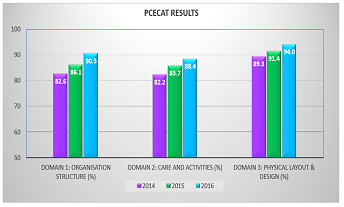
Chanel Burke
University of Technology Sydney, Australia
Title: Improving quality of life for people with dementia: The Person-Centred Environment and Care Assessment Tool
Biography
Biography: Chanel Burke
Abstract
Background and Purpose: A person-centred care approach to service delivery can improve the quality of life of people living in residential aged care homes. Such an approach also meets many of the requirements of the Australian Aged Care Residential Standards. The Person-Centred Environment and Care Assessment Tool (PCECAT) was developed as an evaluation measure for residential aged care services, linking Kitwood’s person-centred principles and the requirements of the Australian Standards. The PCECAT assesses specific areas for improvement, according to person-centred principles and the Australian Standards. Opportunities for improvement are identified, strategies developed and their effects for residents may be evaluated.
Methodology: A mixed method approach was used to develop and validate the PCECAT in five sequential stages. The domains and items of the PCECAT were theoretically derived and confirmed for content and face validity by an expert Delphi panel. The Delphiconfirmed versions were piloted resulting in amendment to content and layout. Testing and re-testing of the amended PCECAT occurred, inter-rater reliability was established, and factor analysis and other validity tests confirmed the final version of the PCECAT.
Outcomes and Significance: The PCECAT has been used by various aged care organisations across Australia and New Zealand to assist in the development of strategies to improve the quality of life for people living with dementia in residential aged care homes. One such organisation, a large provider of residential aged care services, utilised the PCECAT to identify gaps in organisational culture, care, activities and environment necessary to support person-centred care. The subsequent introduction of quality improvement
strategies has resulted in a demonstrated improvement in the provision of person-centred care within that organisation over a three year period.

Anglicare – PCECAT results
Conclusion: The PCECAT is a means for assisting residential services to identify, address and improve service delivery and resident outcomes accordingly to Australian Residential Care Accreditation Standards and the person-centred model, and benchmark services against international best practice.
References:
- Edvardsson et al. (2008). Person-centred care of people with severe Alzheimer’s disease: current status and ways forward. Lancet Neurology, 7(4), 362-367.
- Commonwealth Department of Health and Family Services (1998). Standards and Guidelines for Residential Aged Care Services Manual. Commonwealth Department of Health and Family Services, Aged and Community Care Division, Canberra.
- Kitwood T. (1997) Dementia Reconsidered: The person comes first. Open University Press, Buckingham.
- Burke C, Stein-Parbury J, Luscombe G, Chenoweth L. (2016) Development and Testing of the Person- Centre Environment and Care Assessment Tool (PCECAT). Clinical Gerontologist Vol 39, ISS. 4.


